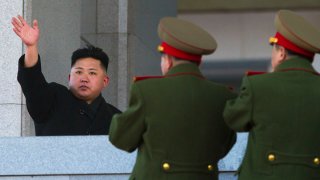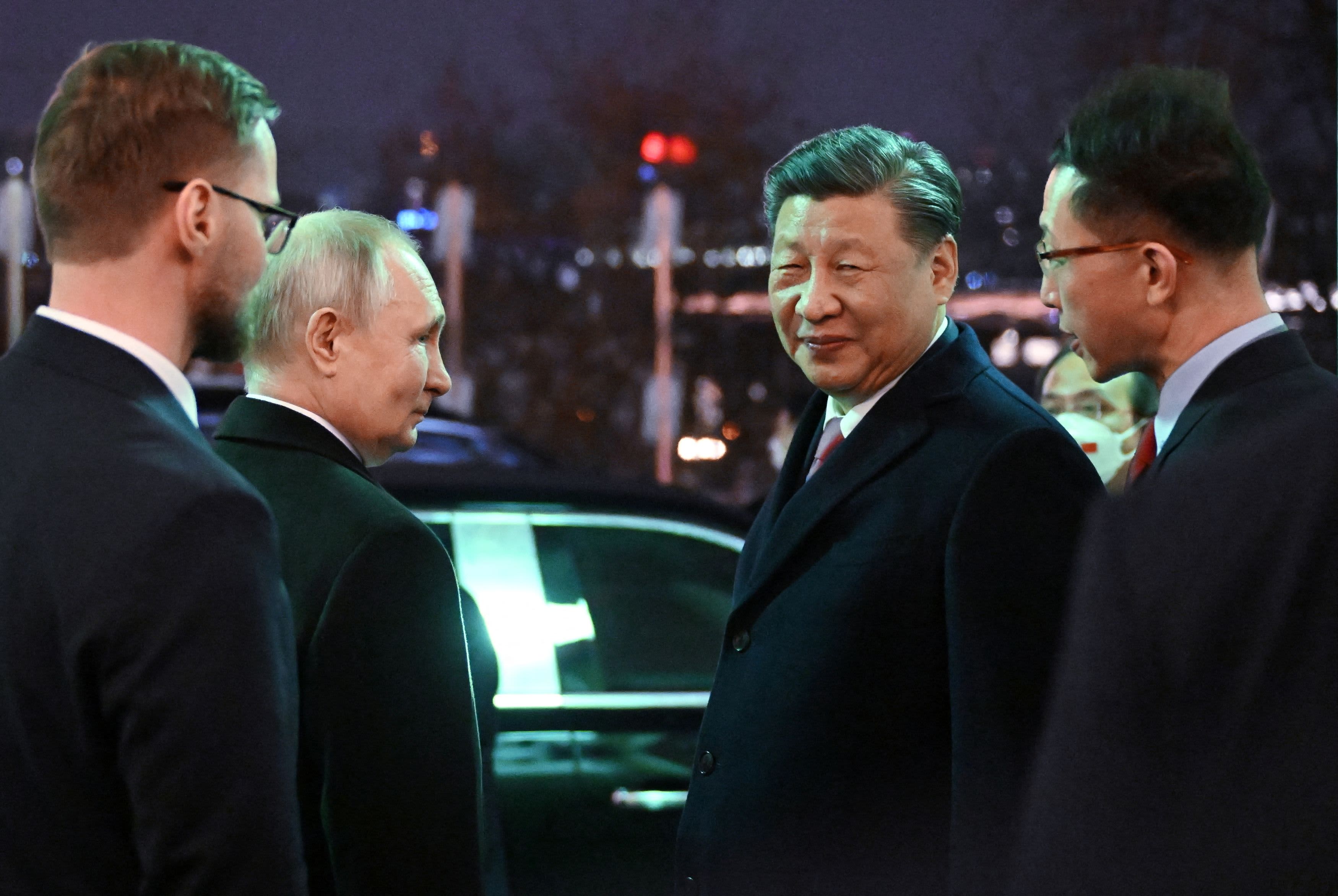
The White House on Thursday said it has new evidence that Russia is looking again to North Korea for weapons to fuel the war in Ukraine, this time in a deal that would provide Pyongyang with needed food and other commodities in return.
It's the latest accusation that Russia, desperate for weaponry and restricted by sanctions and export controls, is turning to “rogue” nations to help it continue to prosecute the 13-month-old war.
“As part of this proposed deal, Russia would receive over two dozen kinds of weapons and munitions from Pyongyang,” White House National Security Council spokesman John Kirby said. “We also understand that Russia is seeking to send a delegation to North Korea and that Russia is offering North Korea food in exchange for munitions.”
The administration has previously declassified intelligence to present evidence that Iran sold hundreds of attack drones to Russia over the summer and that the Wagner Group, a private Russian military company, has taken delivery of arms from North Korea to help bolster its forces as they fight side-by-side with Russian troops in Ukraine.
Get top local stories in Connecticut delivered to you every morning. >Sign up for NBC Connecticut's News Headlines newsletter.
Experts believe the food situation in North Korea is the worst it has been under Kim Jong Un’s 11-year rule, but they still say they see no signs of imminent famine or mass deaths. Kim vowed to strengthen state control over agriculture and take a spate of other steps to increase grain production, North Korean state media reported earlier this month.
Secretary of State Antony Blinken said last month that U.S. intelligence suggested China was considering providing arms and ammunition to Russia, though White House officials have said they have yet to see evidence of Beijing following through with weapons delivery.
The publicizing of Russia's efforts to get weapons from North Korea is just the latest example of the Biden administration loosening restrictions on intelligence findings and making them public over the course of the grinding war in Ukraine.
The administration has said it has sought to disseminate the intelligence findings so allies and the public remain clear-eyed about Moscow’s intent and Russian President Vladimir Putin thinks twice about his actions.
Earlier Thursday, the Treasury Department's Office of Foreign Assets Control announced sanctions against a Slovakian national, Ashot Mkrtychev, alleging he attempted to facilitate arms deals between Russia and North Korea.
Kirby said Mkrtychev is at the center of the new North Korea-Russia deal, which has yet to be consummated. He added that the U.S. does not have evidence that Mkrtychev was involved in the earlier transfer of weapons to Russia's Wagner Group, whose mercenaries have been in the center of a monthslong battle for the eastern Ukrainian city of Bakhmut.
Between the end of 2022 and early 2023, Treasury said Mkrtychev worked with North Korean officials to obtain over two dozen kinds of weapons and munitions for Russia in exchange for commercial aircraft, raw materials and commodities to be sent to North Korea.
Mkrtychev worked with a Russian citizen to find commercial aircraft to delivers goods to North Korea in the exchange.
“Russia has lost over 9,000 pieces of heavy military equipment since the start of the war, and thanks in part to multilateral sanctions and export controls, Putin has become increasingly desperate to replace them,” Treasury Secretary Janet Yellen said in a statement. “Schemes like the arms deal pursued by this individual show that Putin is turning to suppliers of last resort like Iran and the DPRK.”
North Korea, an outlier on the global stage, has sought to enhance relations with Russia since its invasion of Ukraine brought an avalanche of sanctions from the West and broad international condemnation.
Any arms deal with Russia would be a violation of U.N. resolutions that ban North Korea from exporting to or importing weapons from other countries.
North Korea is the only nation aside from Russia and Syria to recognize the independence of Russia-backed separatist territories, Donetsk and Luhansk, in eastern Ukraine.



